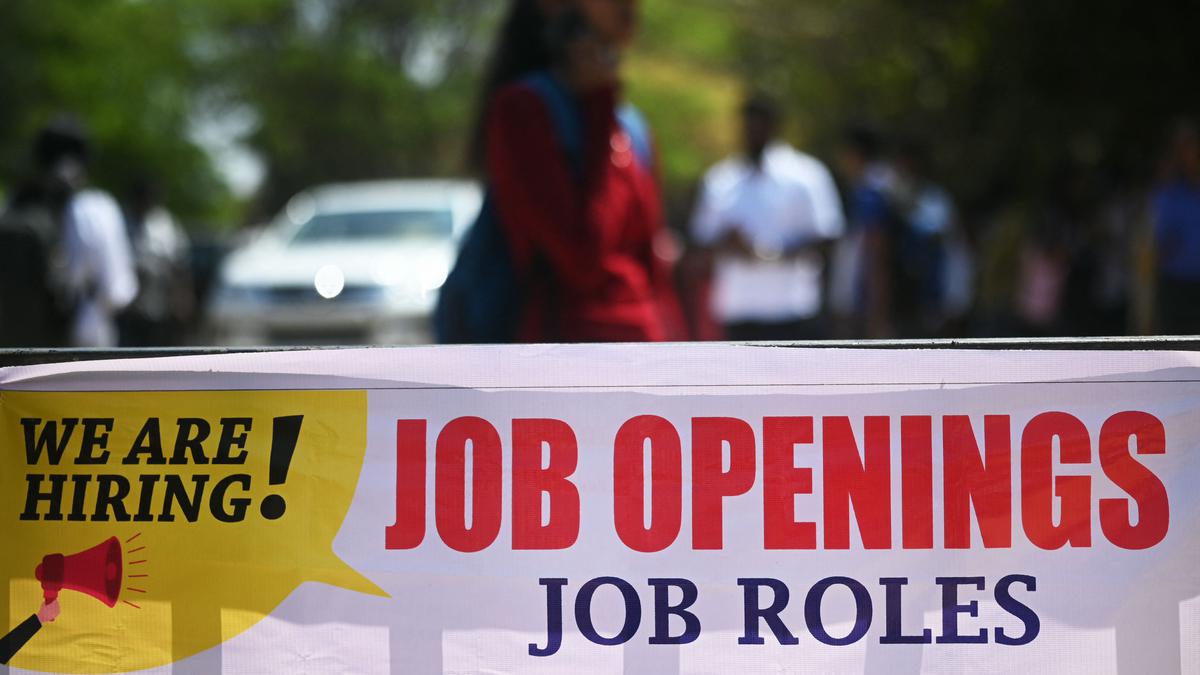
Is unemployment a major factor in shaping the vote choice of the youth? Premium
The Hindu
CSDS Survey on how unemployment influence voting decisions in youth, explained by The Hindu
For the upcoming Lok Sabha elections of 2024, Narendra Modi and the Bharatiya Janata Party (BJP) have strategically crafted their narrative around four key pillars: the poor, the youth, women, and farmers, referring to them as the ‘chaar jatiyan‘ (four castes). This rhetoric is a departure from traditional caste politics in India, emphasising development and inclusivity under the pledge for a Viksit Bharat (Developed India). Among these, youth emerge as a critical focus. Prime Minister Modi’s call to action in his 110th ‘Mann ki Baat’, urging first-time voters to participate through the ‘Mera Pehla Vote – Desh Ke Liye’ campaign, underscores the importance of the youth’s engagement in the democratic process.
However, amidst these promises, a pertinent question arises: Does the BJP agenda truly resonate with the concerns of the youth, particularly regarding employment? Using data sourced from the Lokniti-CSDS survey, we attempt to unravel the pulse of the young electorate from Delhi. Conducted in the first week of March 2024, the survey involves interviews with 611 students in Delhi.
Existing realities reflect the struggles and aspirations of Indian youth to secure employment within a constrained job market. The youth themselves are aware of the limited employment opportunities in recent times. Data indicates that an overwhelming majority of youth in Delhi believe that it has become somewhat difficult (55%) or very difficult (25%) to secure employment in the last two years (Table 1).
Despite claims of economic growth, the issue of job creation continues to be the biggest challenge. This uncertainty significantly impacts the opinion of the youth on their future job prospects. A considerable proportion of students express uncertainty about their employment prospects, particularly concerning their educational qualifications. While approximately a quarter (24%) express confidence in securing employment, a significant portion remains uncertain (Table 2).
The youth aspire to secure stable jobs with security, exhibiting a prevalent preference for government jobs — with three in five (63%) aspiring for a government job.
The BJP initiated a narrative of transforming youth from job seekers to job creators within its vision for economic development. This idea promotes entrepreneurship, innovation, and self-reliance among the youth, aiming to shift their orientation from seeking employment to creating opportunities, not only for themselves but also for others. Interestingly, when youth in the survey were asked about this slogan, nearly half aligned themselves with the Prime Minister’s vision of becoming job creators, suggesting resonance with the government’s emphasis on entrepreneurship. Conversely, a little over one fourth (27%) stated they would seek employment. Nearly one in 10 also mentioned an inability to marshal resources to generate employment for themselves and others. This segment does not directly negate the overall idea of job creation (Table 3).
Across gender, men exhibit a higher preference for this role, with nearly three in five young men (58%) expressing their willingness to become job creators compared to two in five (39%) women intending the same. Moreover, within various streams of study, the preference for becoming a job creator was higher among commerce students (54%), followed by science (48%). Students studying the arts (39%) were less likely to aspire for this role (Table 4).













